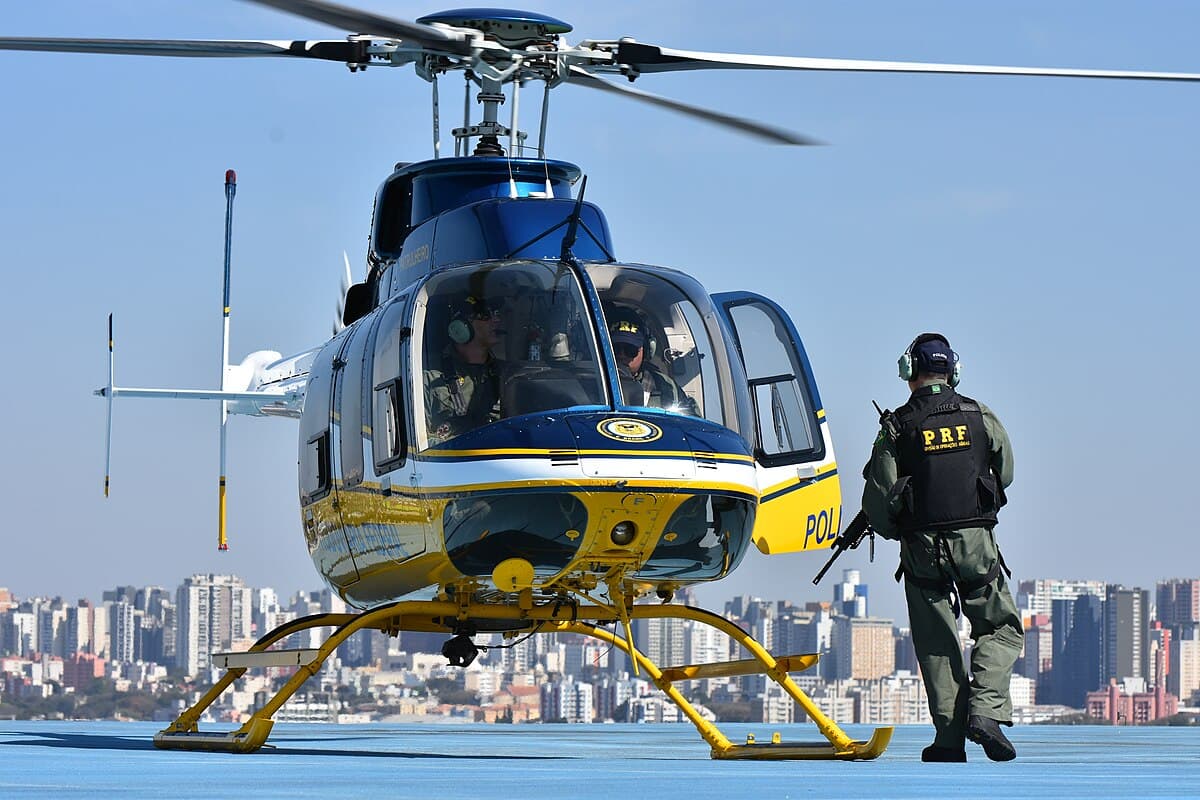We're loading the full news article for you. This includes the article content, images, author information, and related articles.
A recent incident involving a police commissioner's use of a force helicopter for official travel has ignited discussions in Kenya about the responsible deployment of public resources and accountability within law enforcement agencies.

The use of a police helicopter for what could have been a commercial flight has drawn scrutiny, prompting a public apology from the involved official and raising questions about resource allocation within security organs. This incident, though occurring abroad, resonates with ongoing conversations in Kenya regarding the prudent management of taxpayer-funded assets by public servants.
The chief commissioner, Mike Bush, apologised for what he termed a 'mistake' after using a police helicopter for a nearly 600km journey to attend a meeting with counterparts. The helicopter, described as a 'secondary' asset, experienced a mechanical issue, grounding it temporarily. Bush acknowledged that a commercial flight would have been more appropriate, stating that more effort should have been made to find one. He maintained that the use of the helicopter did not incur additional costs to taxpayers.
In Kenya, the utilisation of government resources, including vehicles and aircraft, by public officials is a recurring topic of public interest and debate. The Public Finance Management Act of 2012 provides a framework for the management of public funds and assets, emphasising accountability and transparency. Regulations often stipulate that government assets should be used for official duties only and in the most cost-effective manner. Instances of perceived misuse often lead to public outcry and calls for stricter oversight.
Several institutions in Kenya are mandated to ensure accountability in the use of public resources. The Office of the Auditor-General conducts audits of government expenditure, while parliamentary committees, such as the Public Accounts Committee (PAC) and the Public Investments Committee (PIC), scrutinise how public funds are utilised. The Ethics and Anti-Corruption Commission (EACC) also plays a crucial role in investigating corruption and unethical conduct by public officers, which can include the misuse of state assets.
Civil society organisations and the public frequently advocate for greater transparency and accountability in government spending. Concerns are often raised about the cost implications of official travel, particularly when more economical alternatives are available. While security agencies often cite operational requirements and security concerns for certain modes of transport, there is a constant demand for a balance between these needs and fiscal prudence.
While specific data on helicopter usage by Kenyan police for non-emergency travel is not readily available in the public domain, reports from the Office of the Auditor-General frequently highlight irregularities in the management of government vehicles and travel expenses across various ministries and departments. For example, the Auditor-General's report for the financial year 2022/2023, released in June 2024, noted instances of unsupported travel claims and inefficient use of government transport in several state entities.
The perceived misuse of public resources can erode public trust in government institutions and fuel perceptions of impunity. It can also divert essential resources from critical public services. For law enforcement agencies, maintaining public confidence is paramount, and incidents that suggest a lack of accountability can undermine their legitimacy and effectiveness.
Moving forward, the focus in Kenya will remain on the implementation and enforcement of existing regulations governing the use of public assets. There is an ongoing push for greater transparency in reporting on how government resources are deployed, particularly for travel and logistics. The public and oversight bodies will continue to monitor the actions of public officials to ensure adherence to principles of accountability and cost-effectiveness.
Keep the conversation in one place—threads here stay linked to the story and in the forums.
Sign in to start a discussion
Start a conversation about this story and keep it linked here.
Other hot threads
E-sports and Gaming Community in Kenya
Active 9 months ago
The Role of Technology in Modern Agriculture (AgriTech)
Active 9 months ago
Popular Recreational Activities Across Counties
Active 9 months ago
Investing in Youth Sports Development Programs
Active 9 months ago